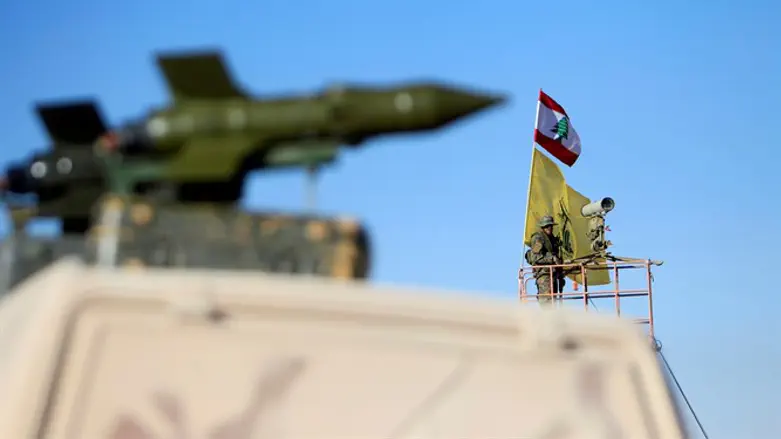
A new report exposes how the Iranian-backed Hezbollah militia attempted to circumvent Israeli airstrikes targeting Iranian forces near Israel's border.
Iran has worked in recent years to entrench itself militarily on Syrian soil, giving its Quds Force branch of the Revolutionary Guards a base of operations for attacks on Israel, including a February 2018 aerial attack on northern Israel.
Israel has made it clear that it would not tolerate Iranian forces massing on its border. According to foreign sources, Israel utilized pinpoint intelligence and airstrikes to thwart Hezbollah efforts at opening a hostile front with the Jewish State on the Golan Heights.
Israel has also been lobbying both the US and Russia to force Iran out of the region. Recent reports said that Israel rejected a Russian offer to keep Iran 80 kilometers from the border.
Recognizing that Israel would not allow it to move its proxies near its territory, Iran changed tact. As reported by the Wall Street Journal on Thursday, Hezbollah has been bribing rebels that would otherwise be hostile to the Shiite militia to switch their allegiances to Iran.
Using monetary means, Hezbollah has succeeded in getting almost 2000 rebels on its side. The report adds that the vast majority of the rebels receiving the $250 monthly stipend were formally on the United States' payroll before losing their funding in 2017.
U.S. Syria Envoy Joel Rayburn told the Wall Street Journal that Hezbollah's bribery campaign is “a highly destabilizing prospect".
“The idea that Hezbollah would be expanding its presence down there on the Jordanian frontier, near the Golan Heights, near the Israeli frontier. This would increase the chance for conflict."